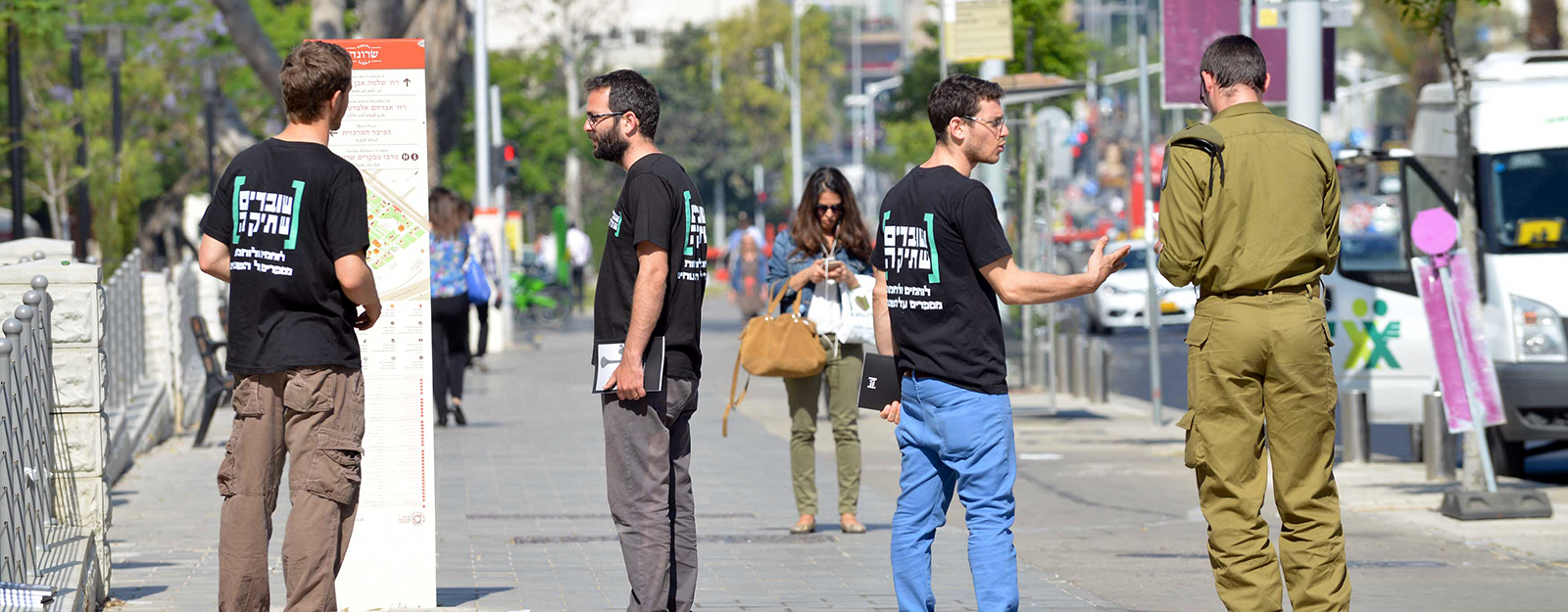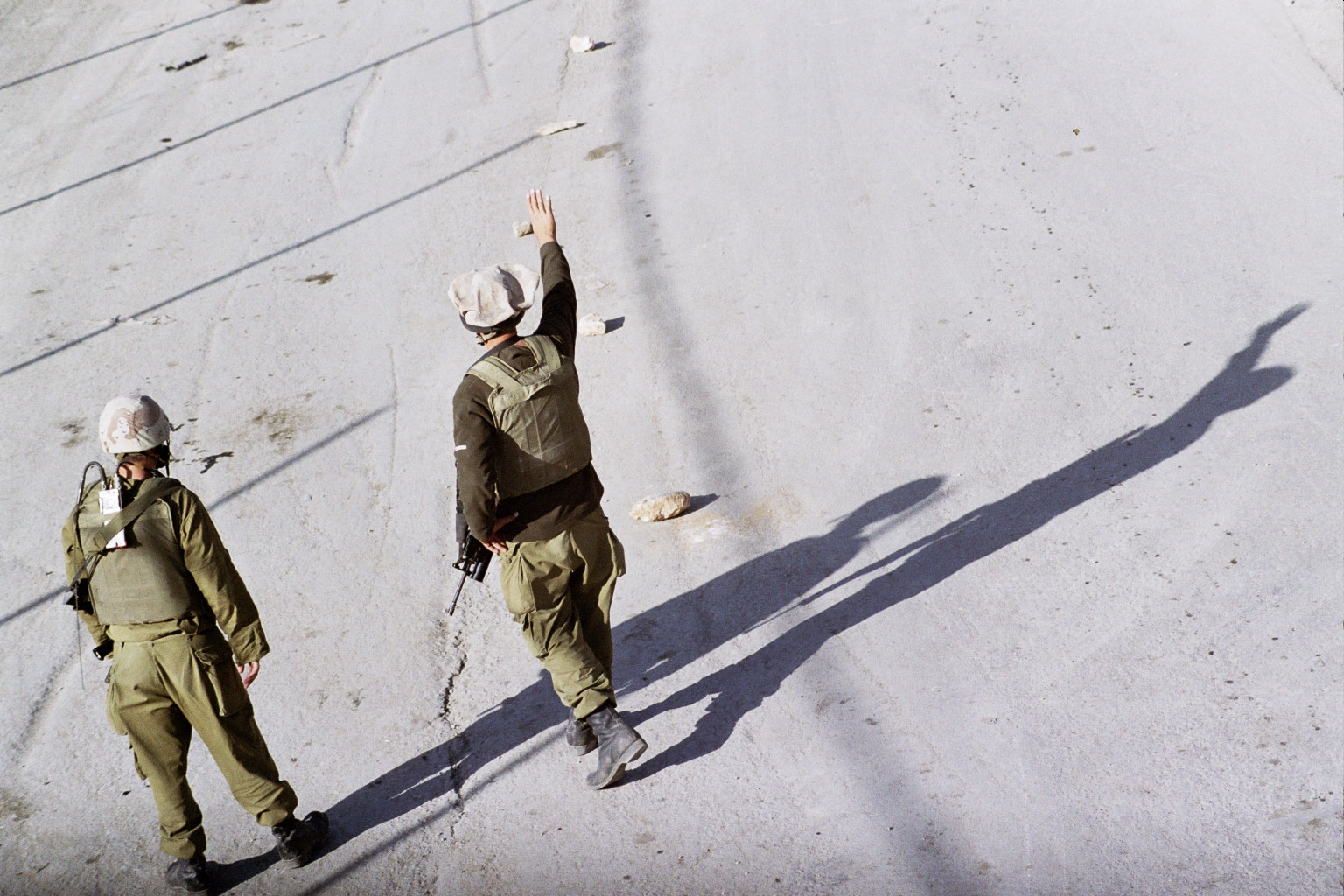And their boat is where, all this time? Floating in the water.
It stays where it was? Usually. Sometimes it’s towed to Ashdod (in Israel). There were trawlers that we confiscated for quite a while. It was a vessel that kept repeating those acts. Every vessel has a number, so you know who it is. After a vessel repeats something often enough, the procedure is isolation. The guy will be picked up and talked to, and they’ll check what’s up with him. A lot of times, until you reach the isolation stage, it’s a process of 8 hours. So for the isolation itself, another vessel was called to come out and pick him up. Usually there were 2-4 people on isolated vessels. Allowances were made if children were on board. Usually, there weren’t any. The youngest guy I ever isolated was around 16 years old. If they were younger, [the fisherman] would be taken on board our vessel, checked out and warned, and then returned to his kid. We wouldn’t leave the kid alone on the boat. Making them keep their distance from the shore is very problematic, because the minute they realize what you want, you play cat-and-mouse with them, you keep surrounding them and don’t let them sail. You get to very short ranges and you can communicate with them on the radio, ordering them to sail west. After you distance them, they have to be at least 8 miles from shore. You start telling them to take their clothes off, and they get down to their underwear. Then you order them to jump into the water and throw them a lifebuoy, so you won’t suddenly find yourself with someone who can’t swim. You pull him in with the lifebuoy and there’s a rope ladder, so you help him climb aboard. There’s an isolation kit with warm clothing and stuff. According to procedure, you must give the person food and a warm drink. I served under very humane commanders, but I’ve seen guys photographed with blindfolded fishermen on board. Some would take photos with their cell phones. There were all kinds of aggressive guys, too. The fisherman had to be hauled on board, and the whole vessel is covered with abrasive paint to prevent slipping, so there were guys who would make his skin rub against it when he was taken down. You have to make him submissive straight away. From the moment you pull him in, the way you take him down has to be aggressive, but I’ve heard people talking heroically about how they did it a bit more aggressively. If things like that are noticed, people are punished. These things were never acceptable in the navy. The guy is shackled, blindfolded, put in a uniform without buttons so there won’t be any confusion, and wrapped up with a scratchy blanket. It’s not that pleasant, but warm. You could be isolating 4 boats now, so you might end up with 8 fishermen. In 80% of the cases, they all stay on deck. You don’t take them inside. There’s an armed guard watching over every single one of them, until you get to the shore. Food and drink are a ‘must’ in such cases.
What distance do they have to swim? Nothing, 20 meters. They don’t swim, you drag them in with the lifebuoy. In the navy, by the time you get some action, guys are thirsting for it. It very much depends on the command staff, how they see things and present things, whether it makes sense for you to be angry with the fishermen or to see the humane side of these people, who just want to make a living. Even when they do it, they’re not doing it to mess around with you but because they have to, and some soldiers understand that, while others don’t, at all. As for the kind of people who serve in the army, the Daboor is not so different from any other type of checkpoint. There are the extremists who can’t wait to smack an Arab, and I can tell you that it’s usually these guys who become the most sensitive, as soon as they see the fisherman after he jumps into the water. Suddenly, they see him in such a degraded position that they are afraid to find themselves in it. We’re not usually in a situation where we can make eye contact. Suddenly, being in a situation where a guy reaches you shivering, just out of the water – it’s a position of power which some people don’t know how to handle, for better or for worse. But every such instance happens in the presence of an officer. A lieutenant must accompany an isolation procedure. He’s an older soldier, so he’s probably done this before. But it’s also a question of who signs on as officer, how he sees this stuff. Luckily, I was with guys who were more humane about it. Because these are terrible things.
You say “luckily” because you know of other kinds of stories? Yes. There are stories about rubbing people against the abrasive side of the boat, photos taken with guys, spitting into the tea you give him, things like that. You hear about these things. The higher echelons don’t accept that at all.









 testimonies
testimonies  media & content
media & content 










 The fisherman had to be hauled on board
The fisherman had to be hauled on board 

 terms of use & privacy policy
terms of use & privacy policy